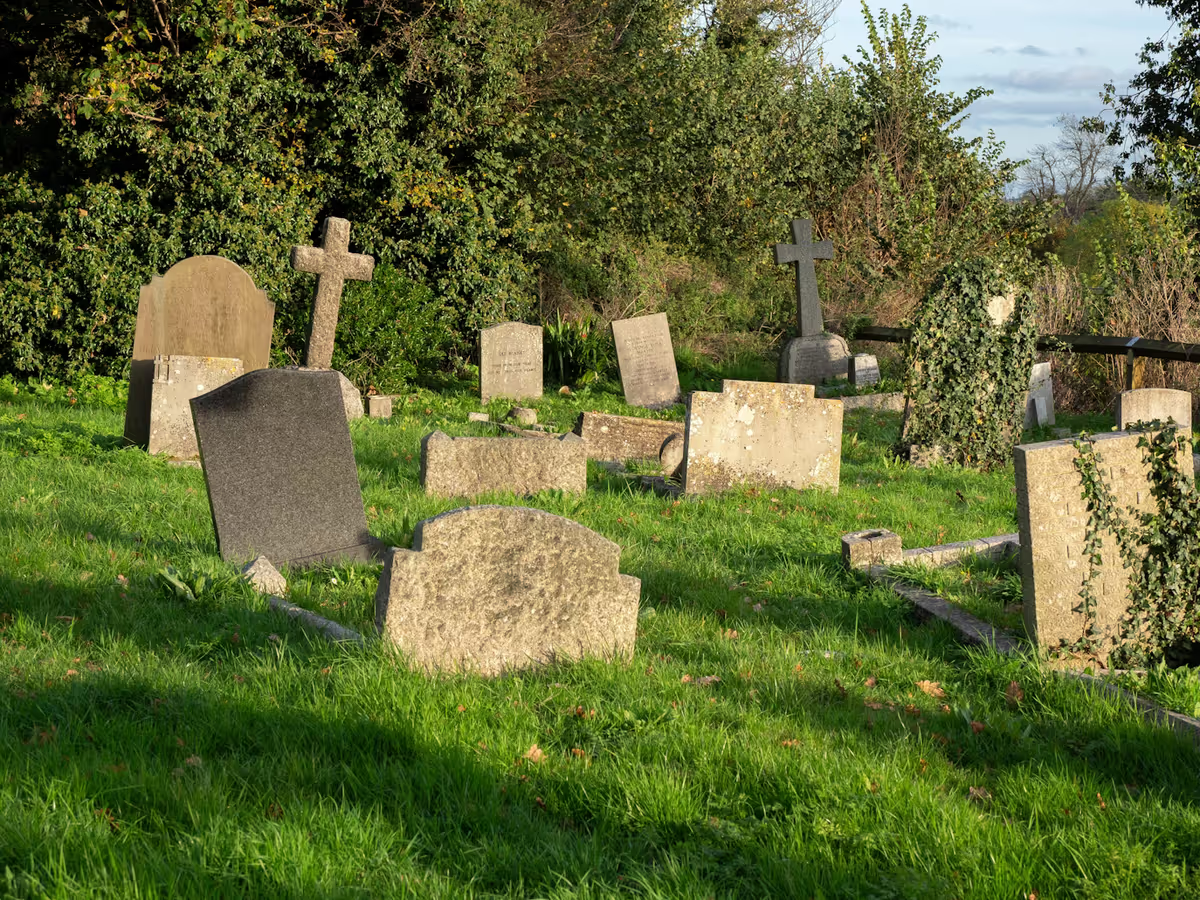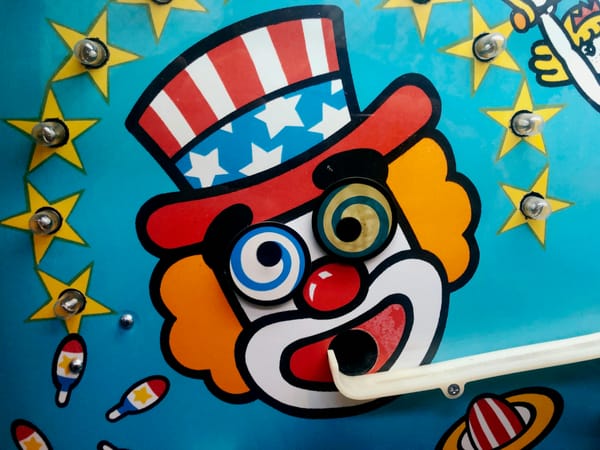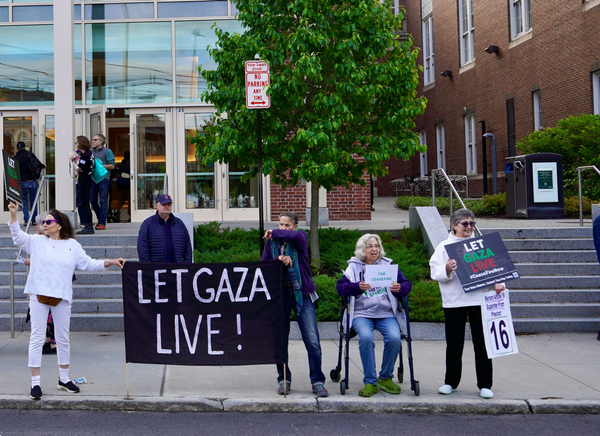Some Thoughts about Fear, Death, and Christianity

In his Society without God (NYU Press, 2008), sociologist Phil Zuckerman documented the many ways in which the Scandinavian countries--some of the least religious on earth--put highly religious countries, and particularly the United States, to shame with respect to positive social outcomes. It's a good read, and, while I haven't looked at the second edition, I see that one was released in 2020.
One section of this book has stuck with me in a powerful way ever since I first read it. The section details Zuckerman's observations in a Danish hospice, where he spoke with an experienced nurse who had been present for many patients' deaths. According to the nurse, the devout Christians she had cared for were far more afraid to die than the atheists and as a result had a much rougher time facing death. This tracks with one of the book's main contentions, which, while undoubtedly a bit reductionist, is well worth considering: the more safe and secure a population is, the less religious it will be.
Please also note: As I am traveling to South Carolina this week to speak at the annual Freedom from Religion Foundation convention, I may not be as active in replying to your comments as usual. The Bugbear Dispatch will not return until after October 20.
Of course, this echoes the classic Marxist pretense that religion is "the opiate of the masses," a comfort sought by suffering people to dull the pain caused by their exploitation and hardship under capitalism. But Zuckerman doesn't attempt to apply a Marxist or Western framework to ALL SOCIETIES EVERYWHERE, and he is perfectly aware that other countries cannot simply replicate the path of Sweden or Denmark to a better secular future.
Further, caveat emptor (or as the kids say don't @ me), any longtime reader of The Bugbear Dispatch or my work in general will know I'm well aware that religion isn't just one thing and that it most certainly cannot be reduced to belief. That belief aspect, which is a kind of ideology, is particularly present in religions with universalist pretensions, like Christianity and Islam, and is much less emphasized in other contexts (e.g. ethnoreligions in which culture and praxis matter far more than "sincerely held belief"). Christianity and Islam also very widely in interpretation and practice, and for some communities are more about culture and community than belief or zeal.
That being said, it doesn't hurt to attempt to learn what we can from Scandinavian realities of secularization and post-Protestant, (largely) secular society. In any case what that Danish hospice nurse described, that intense fear she observed in her Christian patients, absolutely corresponds to my experience growing up as an American evangelical in the 1980s, and it clearly fits the pattern of today's evangelicals wielding massive power in our fascist government. For some who foment it, moral panic may be simply a tool employed cynically, but the tool would hardly be effective if the fear it generated were not real.
Now courage, of course, is neither the opposite nor the absence of fear, but it is certainly related to fear. And when it comes to courage and fear, there's a funny pattern at play in evangelical subculture. I'm exploring this pattern further in my next essay for The Flytrap, so I'll try to avoid repeating myself too much here as I unpack it. There is certainly more to say.
The notion that someone who obsessively repeats something is harboring doubt about the thing is sometimes referred to as the paradox of affirmation. On some level, I suppose we're all familiar with what it looks like in practice. After all, it's perfectly normal to try to talk ourselves into doing something we're scared to, to "psych ourselves" up to do something difficult, to try and manifest the sort of person we want to be or counter negative self-talk with positive affirmations. We do this, however, precisely because we're not in the emotional state that we want to be in. We are trying to shape ourselves, and as long as we're conscious of that, this can be a healthy thing to do.
However, this kind of repetition can sometimes be a sign of something unhealthy. Some people may find efficacy and value in mantras, but that's not what I'm talking about here. What I'm trying to get at is that something is definitely off when one feels compelled to repeat the "truths" of one's all-encompassing ideology–not just to oneself but also to others, frequently in a defensive way--in an exhausting effort to keep fear, doubt, and often reality itself at bay.
In the stricter and more obsessive forms Christianity (e.g. most of them), this happens to those who take their faith seriously because of the contradictions, tensions, and inherent ambiguity involved in trying to be "a good Christian," which involves policing not only your behavior, but also your thoughts and feelings.
Are you "growing in your walk with God"?
Have you been "transformed" through your "relationship with Christ"?
Where have you "seen God working lately," or what is he "trying to tell you"?
These are real questions Christians ask themselves. In some cases (certainly in American evangelicalism), they will also be asked these questions be their pastors, church small group members, and "accountability partners."
Of course, the answers to these questions cannot derive from concrete things that can be measured, and yet many Christians live in constant fear that they are not "pure" and "spiritual" enough. They blame themselves for the bad things that happen in their life, attributing them to a lack of sufficient faith or to failing to pray or "trust God" enough. The inherent uncertainty in this practice is terrifying, because what if you're somehow not really saved?
It's all further complicated by the fact that conservative Christian communities don't really countenance much talk about doubt. If you admit to doubt, a pastor might attempt to be kind and understanding for a while. Persist too long, however, and he'll–the churches where these things are common typically rarely or never ordain women to the pastorate--decide that the problem is with you. Maybe you've "allowed Satan to gain a foothold" in your life? Maybe you're "harboring sin"? If you were "in tune with the Holy Spirit," after all, you simply would not have doubts about Christian dogma. This is a type of spiritual abuse, and one that I have experienced firsthand, from one of my own childhood pastors.
So you tell yourself you believe, you will yourself to believe, you repress doubt, and you tell yourself that Christianity is working for you. If it's not, you're probably going to hell, so it's very important that it is. And what does that mean? Well, it means you'll have "the peace that passeth all understanding." You'll be "strong and courageous," knowing that "if God is for us, who can be against us"? If you don't feel the truth of those things, that'a s you problem.
Sigmund Freud, crusty old misogynist that he was, was wrong about many things--but he was right about some things. One of those things was this: the repressed will return, often in a disruptive way.
The kind of Christianity I've described above, which I've also lived, fuels repression and denial. The fear and self-hatred that lie at the base of it can't be kept at bay forever. And so it makes perfect sense to me, ultimately, that that Danish hospice nurse I referenced at the beginning of this essay observed that the Christians in her care were terrified to die, even though--in some ways even because--Christians sing hymns and repeat Bible verses and generally insist constantly that Christians should not fear death, that they do not fear death, because they know that through his sacrifice Jesus conquered death and has "prepared a place for them" in Heaven.
If you want to see a historical example of this phenomenon, I recommend reading Martin Luther's 1525 polemic against Renaissance humanist Desiderus Erasmus, On the Bondage of the Will. Every page is full of vigorous and dogmatic assertions, and every page is dripping with obvious anxiety. It's particularly rich when Luther repeats multiple times that his knowledge that there is no free will and that God is in control of everything gives him "comfortable certainty," when his prose is so far from anything remotely comfortable or certain.
That's all for this week! Thank you for reading and for bearing with me through this transitional period, when I haven't been writing as much as I usually do. I should be back in more of a regular routine soon, and hopefully my anxiety at the political state of this country, which is particularly tense and dangerous for a trans person like myself, won't hamper my productivity too much.
The Bugbear Dispatch extends a special thanks to our founding subscribers Jody, Ryan Boren, Katie in Seattle, Kel, Roslyn Reid, Rob B. and anonymous for their generous financial support of this publication.




